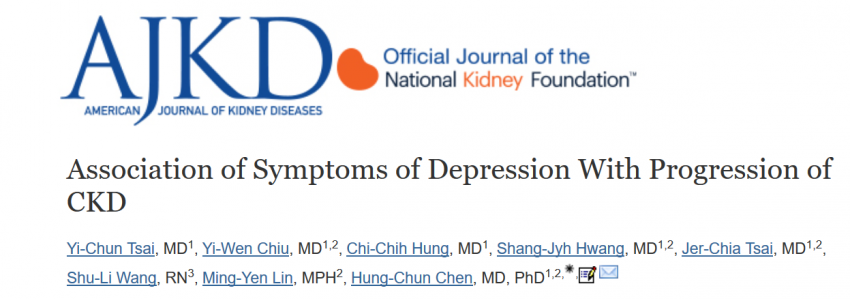This is a prospective observational cohort study from 2012. [1]
568 participants with CKD not requiring dialysis were recruited consecutively at a tertiary hospital in Southern Taiwan and followed up for 4 years. Depressive symptoms were assessed by the Beck Depression Inventory. 428 participants completed the questionnaires and 160 (37%) had depressive symptoms. During a mean follow-up of 25.2 ± 11.9 months, 136 participants (32%) reached the primary outcome (119 reached ESRD and 17 died) and 110 participants (26%) were hospitalized. High depressive symptoms increased the risk of progression to ESRD or death (HR, 1.66; 95% CI, 1.14-2.44) and first hospitalization (HR, 1.59; 95% CI, 1.03-2.47). Participants with high depressive symptoms had more rapid GFR decrease (eGFR slopes of −2.3 [25th-75th percentile, −5.3 to −0.4] vs −1.2 [25th-75th percentile, −3.5 to 0.3] mL/min/1.73 m2 per year; P = 0.001) and initial dialysis treatment at a higher eGFR (OR for initiation of dialysis at eGFR >5 mL/min/1.73 m2, 4.45; 95% CI, 1.44-13.78).
1 Tsai YC, Chiu YW, Hung CC, et al. Association of symptoms of depression with progression of CKD. Am J Kidney Dis 2012;60:54–61. doi:10.1053/j.ajkd.2012.02.325


